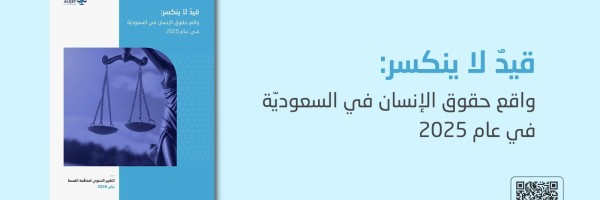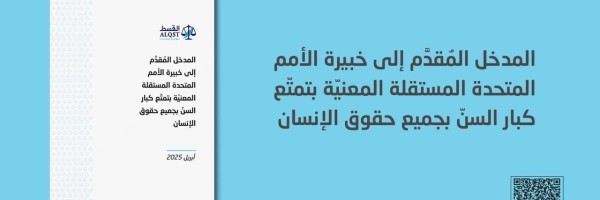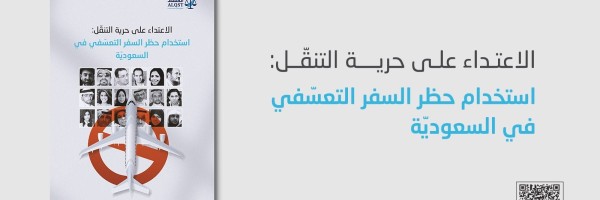Introduction
2015 began with the death of King Abdullah. With a new king sworn in there came new promises, all of which looked hopeful at the beginning of the year, but as 2015 went by proved to be nothing more than that – just empty promises. A major cabinet reshuffle raised eyebrows across the international human rights community as Mohammed bin Nayef, the controversial Interior Minister, was named Crown Prince. The King also appointed his son, Mohammed bin Salman, as Deputy Crown Prince and Minister of Defence. Between them, these men control virtually all of the Kingdom‘s affairs and hold ultimate responsibility for many of the human rights abuses that continue to take place.
Many more human rights activists were tried during 2015 in the Specialised Criminal Court set up to deal with terrorism cases, and were imprisoned for lengthy periods of time. All members of ACPRA (the Saudi Civil and Political Rights Association) are now imprisoned, with only two remaining on trial. Their trials are expected to conclude in early 2016, and both are expected to receive lengthy prison terms to match the others.
In March, Saudi Arabia announced its intervention in the war in Yemen. Since then, many human rights and humanitarian violations, including war crimes, have occurred in the course of its campaign.
The number of executions carried out in Saudi Arabia reached a 20–year high in 2015. Rumours spread that the Authorities would be carrying out a mass execution of around 50 prisoners simultaneously in different parts of the country at the end of the year or early in 2016. Minors like Ali al-Nimr also face the death penalty by beheading and crucifixion, which draws much international condemnation.
In August, ALQST conclusively proved that drugs are rife in Saudi prisons. The questions of torture and overcrowding within the prison system have yet to be answered by the Authorities.
September saw Saudi Arabia elected to Chair the Independent Experts Panel of the UN Human Rights Council, against a background of continued autocratic rule at home and a sustained crackdown on free speech and peaceful calls for reform, denial of the basic rights of women, minorities and migrant workers, and mass arrests and heavy use of the death penalty, even for non-violent offences.
2015 ended on what appeared to be a high as, for the first time in the country’s history, elections took place in December in which women voted, stood as candidates, and were elected as municipal councillors. On further inspection, however, it was clear that these elections were of no significance, and were nothing more than an attempt by the Saudi authorities to mislead the international community into thinking they were making progress on improving their human rights record.
To read the full report: here or:
https://drive.google.com/file/d/0B5Pfhjxv1walZmZvdFg1aUpobkU/view?pref=2&pli=1 (English)
https://drive.google.com/file/d/0B5Pfhjxv1walbkl3Vk5hZmNJbm8/view?pref=2&pli=1 (Arabic)
http://old.alqst.org/eng/2015-hr/human-rights-in-saudi-arabia-2015/




